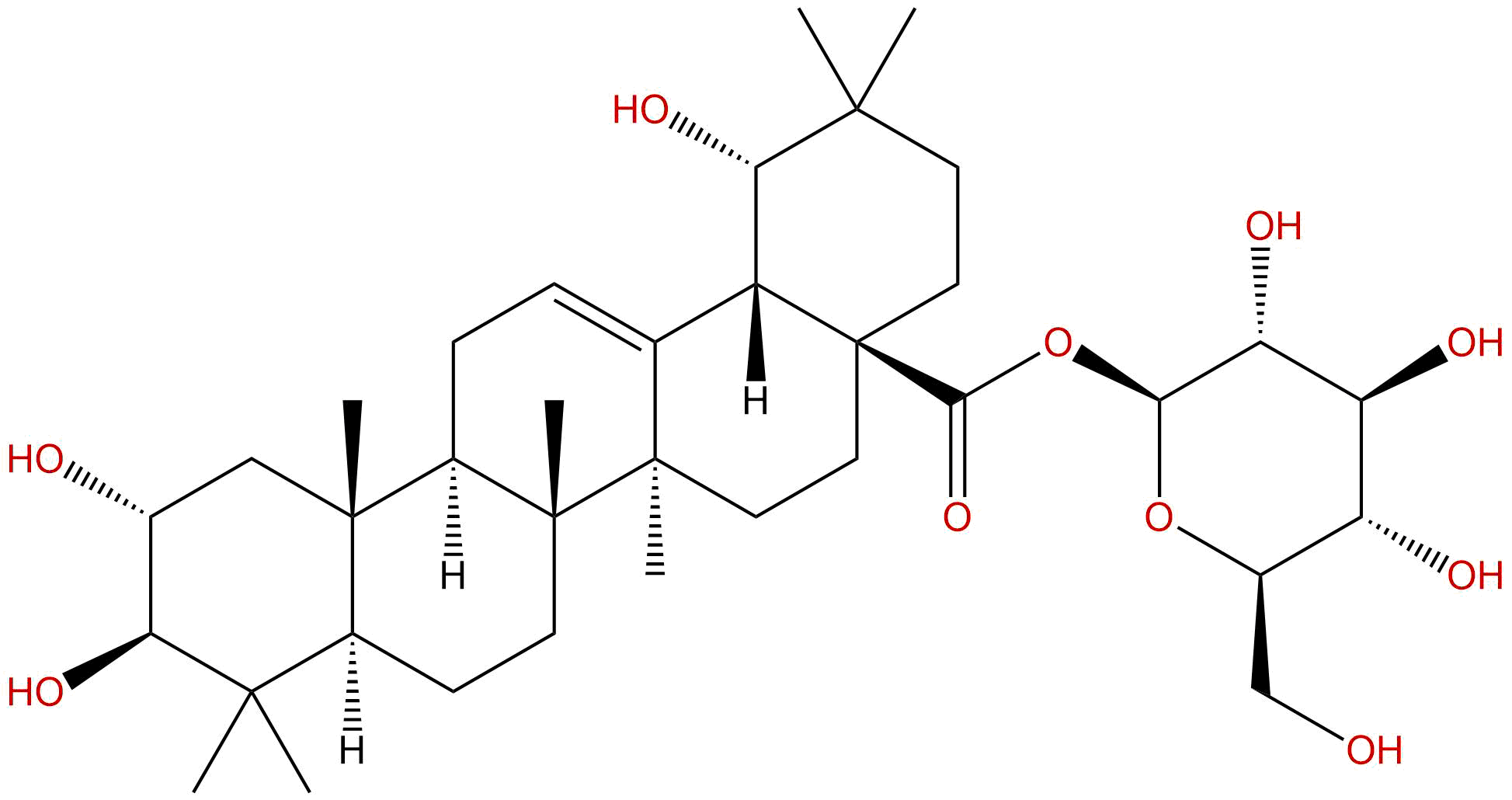
ArjunetinCAS No.:31297-79-7
|
||||||||||
 |
|
|
||||||||

| Catalogue No.: | BP4482 |
| Formula: | C36H58O10 |
| Mol Weight: | 650.85 |
Product name: Arjunetin
Synonym name: 24-Deoxysericoside
Catalogue No.: BP4482
Cas No.: 31297-79-7
Formula: C36H58O10
Mol Weight: 650.85
Botanical Source: Terminalia arjuna Wight & Arn.
Type of Compound: Terpenoids
Purity: 95%~99%
Analysis Method: HPLC-DAD or/and HPLC-ELSD
Identification Method: Mass, NMR
Packing: Brown vial or HDPE plastic bottle
The product could be supplied from milligrams to grams
Inquire for bulk scale.
References:
Arjunetin as a promising drug candidate against SARS-CoV-2: molecular dynamics simulation studies
J Biomol Struct Dyn 2021 Sep 17;1-22. doi: 10.1080/07391102.2021.1970627. Online ahead of print
Abstract
Stem and bark of the tree Terminalia arjuna Wight & Arn. (Combretaceae) has been documented to exhibit therapeutic properties like cardiotonic, anticancer, antiviral, antibacterial, antifungal, hypercholesterolemia, hypolipidemic, and anti-coagulant. Our previous studies have shown that, ethanolic extract of T. arjuna bark exhibits radical scavenging anti-oxidant activity and also effectively inhibited catalase activity. In this study, oleanane triterpenoids type compounds viz., oleanolic acid, arjunolic acid, arjunolitin, arjunetin were isolated from ethanolic bark extract as bio-active compound and their structures were elucidated using 1H, 13C NMR, HR-ESIMS, IR. Of the various compounds, Arjunetin showed significant inhibition of catalase activity as compared to the other compounds. Based on the structural similarity between arjunetin and current antiviral drugs, we propose that arjunetin might exhibit antiviral activity. Molecular docking and molecular dynamics studies showed that arjunetin binds to the binds to key targets of SARS-CoV-2 namely, 3CLpro, PLpro, and RdRp) with a higher binding energy values (3CLpro, -8.4 kcal/mol; PLpro, -7.6 kcal/mol and RdRp, -8.1 kcal/mol) as compared with FDA approved protease inhibitor drugs to Lopinavir (3CLpro, -7.2 kcal/mole and PLpro -7.7 kcal/mole) and Remdesivir (RdRp -7.6 kcal/mole). To further investigate this, we performed 200-500 ns molecular dynamics simulation studies. The results transpired that the binding affinity of Arjunetin is higher than Remdesivir in the RNA binding cavity of RdRp. Based on structural similarity between arjunetin and Saikosaponin (a known antiviral agents) and based on our molecular docking and molecular dynamic simulation studies, we propose that arjunetin can be a promising drug candidate against Covid-19.Communicated by Ramaswamy H. Sarma.
Keywords: SARS-CoV-2 protease; Terminalia arjuna; arjunetin; catalase inhibition; molecular docking; molecular dynamic simulations.